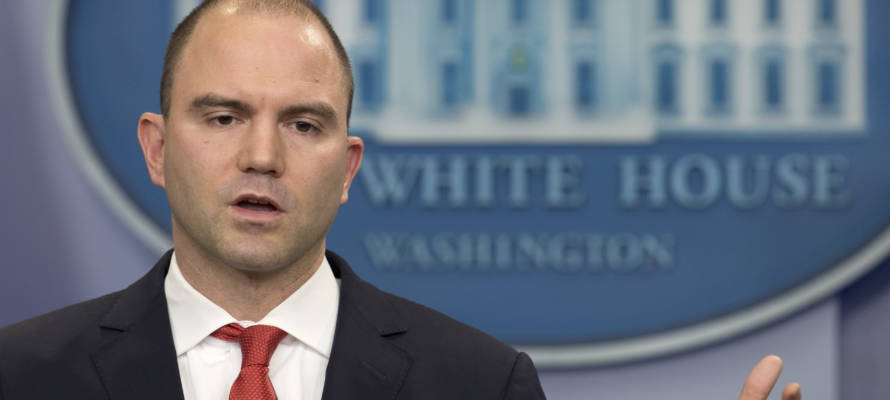Senior White House official Ben Rhodes has caused an uproar among journalists, political pundits and policy officials after he admitted to manipulating the public with “misleading or false” information to garner support for last July’s nuclear deal with Iran.
In a New York Times Magazine profile published on Thursday of President Obama’s foreign policy adviser Ben Rhodes, journalist David Samuels writes, “The way in which most Americans have heard the story of the Iran Nuclear Deal presented — that the Obama administration began seriously engaging with Iranian officials in 2013 in order to take advantage of a new political reality in Iran, which came about because of elections that brought moderates to power in that country — was largely manufactured for the purpose for selling the deal. Even where the particulars of that story are true, the implications that readers and viewers are encouraged to take away from those particulars are often misleading or false.”
Rhodes, who heads the communications team tasked with selling the Iran nuclear deal to the public, gloats about how he was able to create an “echo chamber” where journalists and think-tankers would discuss and report on the deal based almost exclusively on information provided by the White House. “They were saying things that validated what we had given them,” Rhodes said.
“We had test drives to know who was going to be able to carry our message effectively, and how to use outside groups like Ploughshares, the Iran Project and whomever else. So we knew the tactics that worked,” he said.
Regarding Washington reporters, Rhodes said, “The average reporter we talk to is 27 years old, and their only reporting experience consists of being around political campaigns. That’s a sea change. They literally know nothing.” Reflecting on this, Samuels writes, “In this environment, Rhodes has become adept at ventriloquizing many people at once.”
New York Post columnist John Podhoretz, writing in a Thursday oped, said the White House “played us for fools” to sell the Iran deal, adding, “Congratulations, liberals of the Washington press corps and elite organizations: You’re a bunch of suckers. We all know this because the Obama White House just told us so.”
Omri Ceren, a senior staffer at The Israel Project (TIP), a group which strongly opposed the Iran deal, took to Twitter to attack Rhodes. “When Rhodes and company brag about how they manipulated their favorite journalists, you don’t get the sense they respect those journalists,” one tweet read. In another post, Ceren poked fun at journalists and policy advisers who still fail to challenge Rhodes.
Reporters and arms control experts in Rhodes echo chamber all echoing same defensive talking points this morning, which is sort of neat.
— Omri Ceren (@cerenomri) May 6, 2016
Michael Doran — former White House senior director in the National Security Council under President George W. Bush and current Senior Fellow at the Hudson Institute in Washington, DC — also took to Twitter, writing, “Obama’s favorite aspiring novelist spun tales about Iran for the press, which repeated them uncritically.”
Thomas E. Ricks, a former Washington Post military correspondent, who says he voted twice for Obama, wrote in an oped for Foreign Policy magazine that Rhodes comes across as completely “unsympathetic” for his actions, “which makes it all the more devastating.” His article, titled “A stunning profile of Ben Rhodes, the a**hole who is the president’s foreign policy guru,” calls out Rhodes for coming off “like an overweening little schmuck” and “a real a**hole.”
Referring to the Washington propaganda machine during the Vietnam War, Ricks warns, “Fact check: Obama’s hasn’t been an original foreign policy as much as it has been a politicized foreign policy. And this Rhodes guy reminds me of the Kennedy smart guys who helped us get into the Vietnam war. Does he know how awful he sounds? Kind of like McGeorge Bundy meets Lee Atwater.”
Major Western powers and Iran are currently working to finalize the implementation of the nuclear agreement signed in July. In September, Republican-led efforts in the Senate to block the deal failed, with 58 senators voting against and 42 in favor of the agreement.
By: The Algemeiner
